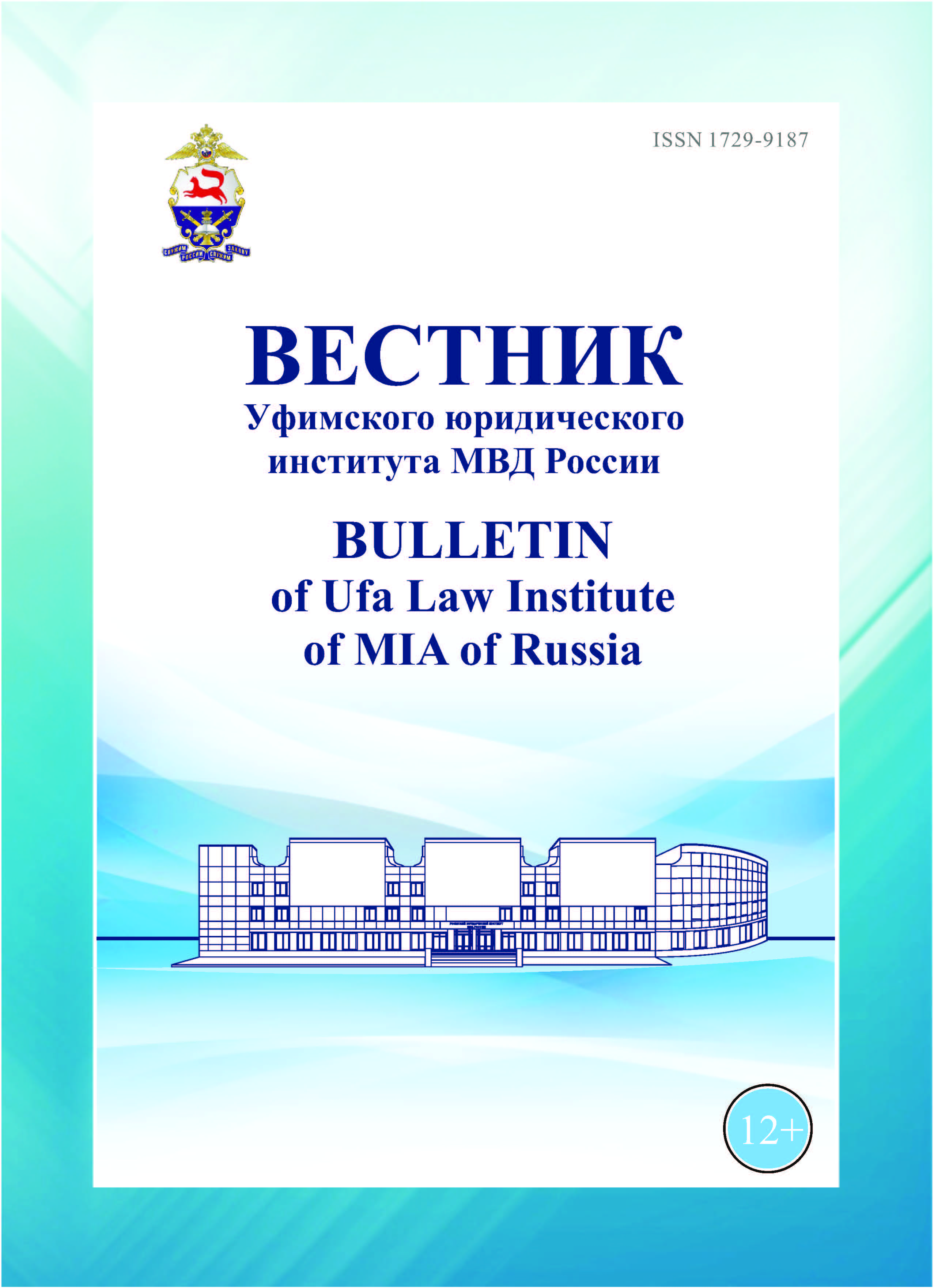employee
Orel Law Institute of the Ministry of the Interior of Russia named after V.V. Lukyanov (The department of foreign and Russian languages, professor)
employee from 01.01.2017 to 01.01.2025
Orel, Orel, Russian Federation
VAK Russia 5.9.5
UDC 81
CSCSTI 16.00
Russian Classification of Professions by Education 45.00.00
Russian Library and Bibliographic Classification 8
Russian Trade and Bibliographic Classification 7
BISAC LAN LANGUAGE ARTS & DISCIPLINES
The article is devoted to systematization of approaches to typological stratification of legal discourse and identification of the main genre models implemented by specific text types. The concept of classification of legal discourse is based on the generalization of the properties of communication mediated by the tasks of practical activities, and stereotypical features of communication in the legal sphere. The article demonstrates a possible approach to the classification of texts of legal discourse, identification and description of their genres. At the primary stage, legislative, judicial, advisory types of texts are identified, as well as texts functioning as part of the practical activity of one of the communicants: a) texts serving the administrative activities of the police; b) texts functioning in the field of investigation and inquiry; c) texts serving forensic and expert activities; d) texts serving the penitentiary sphere; d) texts related to office work in the field of law enforcement agencies. Further, the genres are differentiated by classes taking into account the specialization of the lawyer and the functional potential of legally significant information. The classification of legal texts proposed in the article takes into account such parameters as the type of professional activity in the legal sphere, the specialization of the lawyer, the functional potential of legally significant information, the communicative cortege formed by the typical addresser and the addressee taking into account the potential exchange of their communicative roles, the communicative framework of the text, the scenario frame underlying communicative interaction in a specific professional situation, the level of formality of interaction, the thematic repertoire, the selectivity of the language use, as well as speech patterns and clichés.
legal discourse, legal text, genre, typology of discourse, text type, discourse analysis
1. Kim I. E., Silantyev I. V. The sphere of communication and discourse: terminological redundancy or essential difference? // Siberian Philological Journal. 2017. No. 4. P. 163–174. (In Russ.)
2. Ryukova A. R. On the issue of discourse classification // Bulletin of Bashkir University. 2016. Vol. 21, No. 1. P. 115–119. (In Russ.)
3. Karasik V. I. Language keys. Moscow: Gnosis, 2009. 406 p. (In Russ.)
4. Gimpelson E. G. On the Issue of Principles of Identifying Rhetorical Genres // Philological Aspect. 2023. No. 5 (97). P. 28–34. (In Russ.)
5. Baranov A. G. Functional-pragmatic concept of text. Rostov-on-Don, 1993. 181 p. (In Russ.)
6. Kubryakova E. S. Language and Knowledge: On the Way to Gaining Knowledge about Language: Parts of Speech from a Cognitive Point of View. The Role of Language in Understanding the World. Moscow: Languages of Slavic Culture, 2004. 560 p. (In Russ.)
7. Shashkova V. N. On the Distinction of the Concepts of “Discourse”, “Text” and “Genre” // Texts of the New Century: Materials of the Interregional Round Table. Orel: Oryol State Institute of Culture, 2019. P. 7–10. (In Russ.)
8. Pashkova M. M. Legal Discourse as a Type of Institutional Discourse // Communications. Society. Spirituality – 2024: Proceedings of the XXIV International Scientific and Practical Conference. Ukhta: Ukhta State Technical University, 2024.P. 147–149. (In Russ.)
9. Karasik V. I. On the Types of Discourse // Language Personality: Institutional and Personal Discourse: Collection of scientific works. Volgograd: Peremena, 2000. P. 5–20. (In Russ.)
10. Vorontsova Yu. A., Galieva D. A., Khoroshko E. Yu. Legal Text as a Basic Construct of Legal Communication // Bulletin of the Ufa Law Institute of the Ministry of Internal Affairs of Russia. 2022. No. 4 (98). P. 168–175. (In Russ.)
11. Bakhtin M. M. Problems of speech genres // Literary-critical articles. Moscow: Khudozhestvennaya Literatura, 1986. P. 428–472. (In Russ.)
12. Iskandarova G. R. Legal text: boundaries of understanding and language optimization // Bulletin of the Ufa Law Institute of the Ministry of Internal Affairs of Russia. 2023. No. 2 (100). P. 144–150. (In Russ.)
13. Anisimova T. V. Legal rhetoric: study guide. Kaliningrad: Kaliningrad branch of the St. Petersburg University of the Ministry of Internal Affairs of Russia, 2024. 336 p. (In Russ.)
14. Gorodetsky B. Yu. Computational linguistics: modeling of language communication // New in foreign linguistics. Issue XXIV. Moscow: Progress, 1989. P. 5–31. (In Russ.)
15. Petrova E. A. Systematic description of the language of the specialty // Bulletin of the Ufa Law Institute of the Ministry of Internal Affairs of Russia. 2023. No. 1 (99). P. 169–175. (In Russ.)









